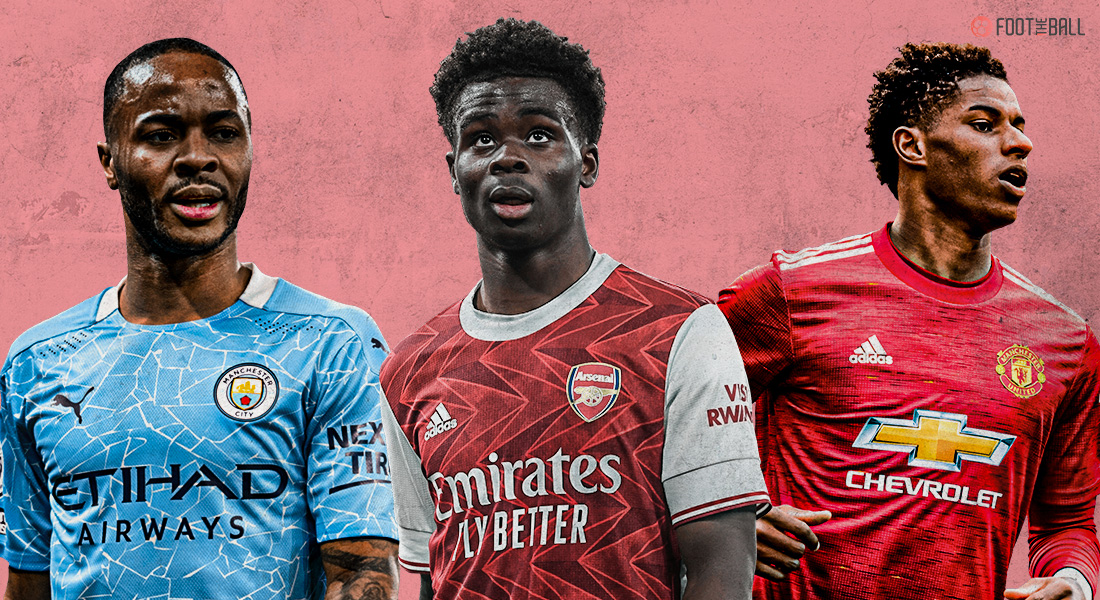The four-day long self-imposed ‘social media blackout’ spearheaded by the Premier League, Women’s Super League, the FA and the clubs across England had just barely ended when the English media was back to its own racist analogies in reporting news.
We should be celebrating a young working class man coming good, making an amazing living, buying and developing his home, and giving back!
He has employed people to do the work and this helping a struggling economy! Shame on @TheSunFootball #dontbuythesun pic.twitter.com/HTP8s2rmmP
— Terry Flewers (@terryflewers) May 4, 2021
The Sun, a newspaper long been accused of sensationalizing news and reporting in a crude manner, came out with the news of Arsenal starlet Bukayo Saka having a football pitch with changing rooms installed at his mansion that has upset a lot of his neighbours.
What really caught the eye however was how the publication chose to address Saka with the words “dirty player.” This was swiftly condemned on social media and casts serious doubts again on how committed media houses truly are in getting rid of racism from the game.
The Sun are boycotting social media to “take a stand against racism” as if they haven’t been a part of the problem for decades #DontBuyTheSun pic.twitter.com/QPDr9vJI6H
— James Felton (@JimMFelton) May 1, 2021
But this particular newspaper is just one of the many who are still portraying only an outward show of change without actually doing any introspection on the kind of stuff they themselves put out or the impact that can create on the public.
FRESH TROUBLE
The headline, that has since been changed to “rabble rouser” follows a long tradition of newspapers and online portals having a reporting bias towards black players. Raheem Sterling, Marcus Rashford, Rhian Brewster, Reece James and many other players have spoken out at various points of time over the last few years regarding the kind of biased coverage that has become so prevalent in the media for a long time now.
'Something needs to change': Chelsea defender Reece James is the latest footballer to reveal vile abuse received on social media as pressure mounts on Instagram and Twitter to introduce serious measures to tackle racism. pic.twitter.com/VicGGzwvHk
— Frank Khalid (@FrankKhalidUK) January 30, 2021
Former players including Patrice Evra, Stan Collymore, Ian Wright have also pitched in stating that the state of the media coverage is the same as during their playing days with no sense of progressive thinking. In March, Arsenal legend Thierry Henry even quit all forms of social media over the abuse he has had to suffer from trolls and fans.
MORE THAN JUST WORDS
The concerns long held by many in the footballing world is that these cases cannot be seen in isolation. When an established media house uses such kinds of words to denote a player of colour, it is neglecting the history of oppression that coloured players and their previous generations have suffered from.
In this instance, the term “dirty player” has deeper connotations as to the kind of words often used to describe black players, that they are unkempt, do not bathe and smell.
“On the first weekend of the season, these incidents should be a reminder for everyone in football – racism and discrimination cannot be ignored."
Following multiple reports of discrimination involving players across the @EFL, we have issued a statement: https://t.co/OptxcGiBi1 pic.twitter.com/P5bmUOetTm
— Kick It Out (@kickitout) August 5, 2019
All of which leads to fan abuse and attacks on social media directed towards the players and their families, particularly after a poor performance in a match. There have been many arrests made in this regard by police and local law authorities, with clubs also coming down heavily on their own supporters found to be engaging in this sort of behavior.
One fundamental fact that remains constant is that the mindset of a large portion of people in the United Kingdom have not changed, with many targeting black players with much more ferocity and viciousness than their white counterparts.
The Premier League is making it clear that there is #NoRoomForRacism as we continue to work with all our clubs, fans, the @FA, @EFL, @PFA, @kickitout and the police to tackle discrimination across all areas of football
Find out more: https://t.co/hkQigsq9UA pic.twitter.com/aYbKFqyt4h
— Premier League (@premierleague) October 18, 2019
The ‘Black Lives Matter’ campaign, a feature of the Premier League since Project Restart, with players taking the knee before kick off has been going strong, if a bit mechanically and it is clear that if real change is to be brought in football, it has to come from the fans themselves and their willingness to change for the better.
WHAT NOW?
Several clubs have started their own campaigns to promote healthier conversations around culture and race, but to little avail. This social media blackout was thought to be the first step in countering a larger narrative by showing the strength in numbers of powerful organisations. Looks like nothing much has changed after all.




